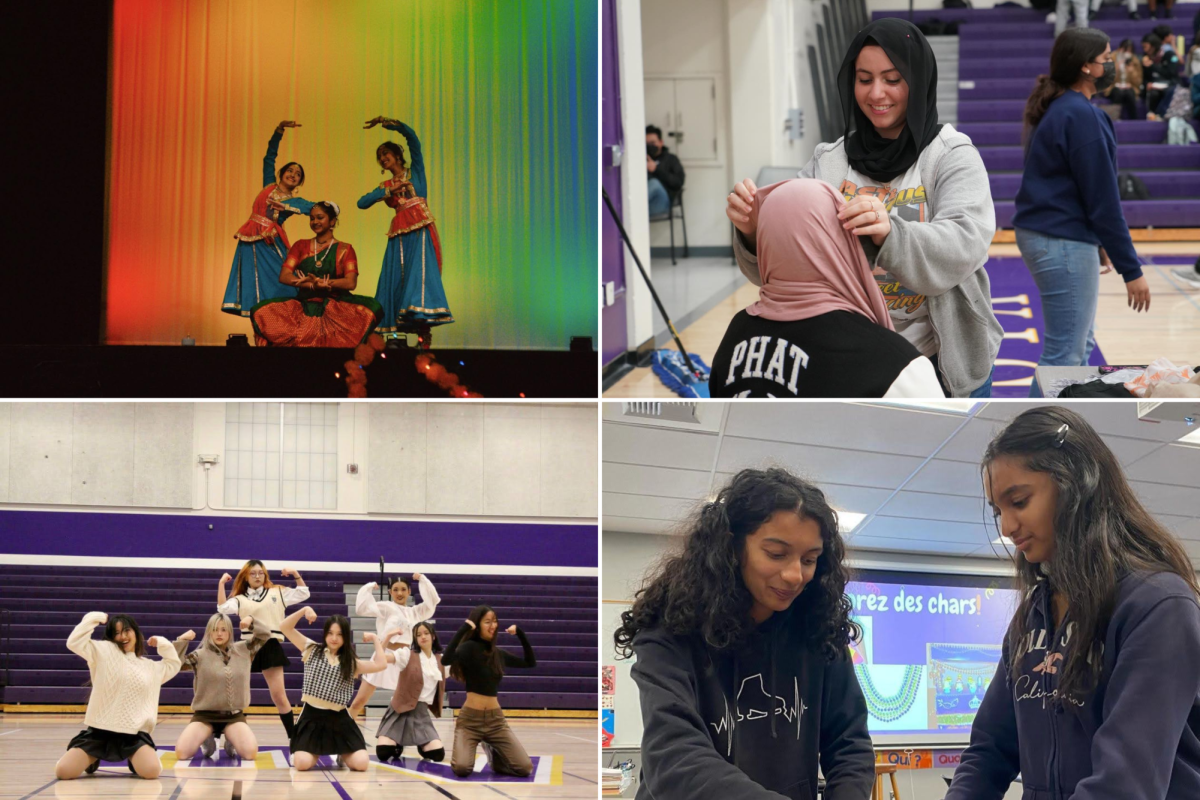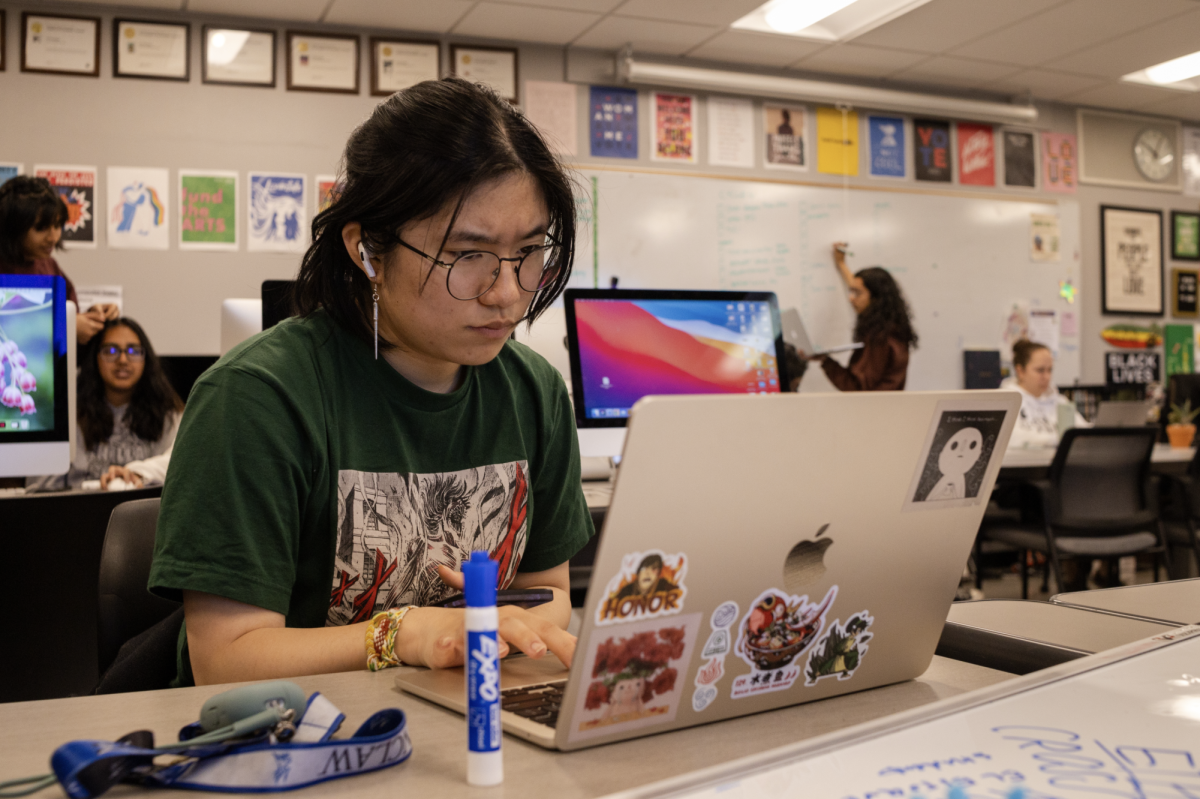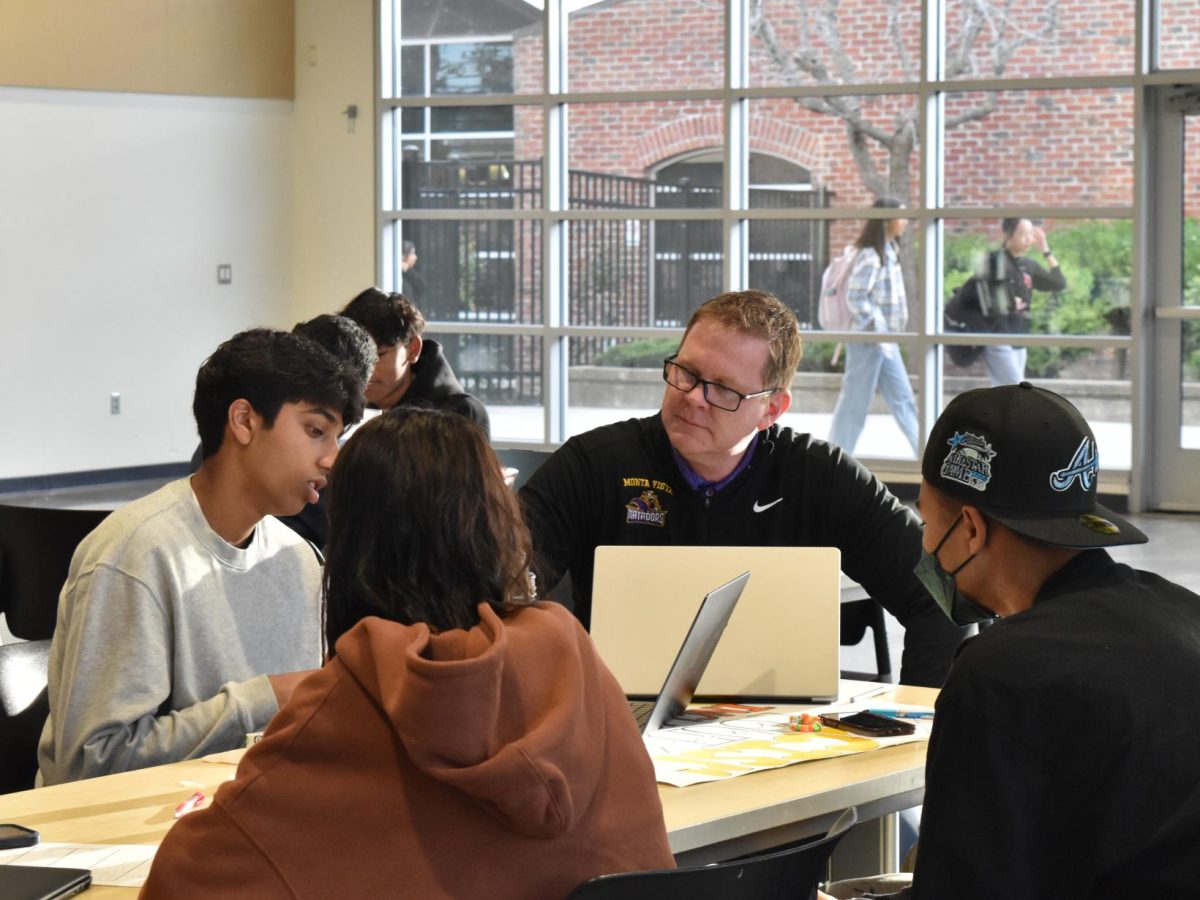
The parent-less life began at the age of five. Her mom moved to Japan for her work. Three years later, her dad moved to the United States, also for work. To her dismay, junior Jessica Hong was left in China under the wings of her grandparents.
It wasn’t easy at first, recalls Hong. Throughout elementary school, she longed for her parents at home. She cherished their staggered visits during breaks — tears filled her eyes every time they left again.
“When I got into middle school, it got a lot better,” Hong said. “I know that they’re trying to work really hard for me, so I respect that.”
Last year, however, it was her turn to leave. She waved goodbye to China and settled in the U.S. Her aunt and grandma welcomed her into her new home, where Hong filled the space of her cousin in college. It was her first time seeing them in person after simple phone calls across the ocean.
Hong has now grown accustomed to the newfound family, yet the feeling of a close-knit family is lacking under the new roof. On a usual day, Hong studies upstairs, her grandma cooks in the kitchen and her aunt works away at her job. Though Hong talks frequently with her grandma, she can’t say the same about her aunt. A brief “How was your day?” during dinner is usually all.
“[My aunt] moved here before I was even born, so we’re not that close,” Hong said.
Due to the emotional distance from her aunt, Hong finds difficulties that her peers may rarely experience. Only her aunt can do certain tasks as a guardian, yet she often displays signs of unwillingness. A simple request of a ride takes great courage to pursue.
The process goes as follows: once Hong decides that a 40-minute walk to a place isn’t an ideal option, she enters the living room with the question in her mind. She stops behind the blue sofa, where her aunt sits after work. Then Hong asks, and her aunt replies. Though Hong can’t see her expressions, she senses the reluctance in her voice.
“Sometimes if it’s really far, she asks, ‘Do you have to go?’” Hong said. “[But] most of the time, she will still drive me to places. I feel sorry for asking her.”
For good or bad, Hong sees a growth in her independence without her parents by her side, as the feeling of guilt discourages her from relying on others. She recalls one evening this year following an after school program. Exhausted from the hours of work, she dragged herself over to the bus station to reach home. The bus was nowhere in sight. So she sprinted against the cold air to another bus station, but that bus was gone as well.
She felt her tears flow down her cheeks. The color black painted across the sky above her. She had no one to save her from the bad luck — her aunt was still at work, and her grandma couldn’t drive. As for her parents, only a plane flight or two could bring them to her. So with no calls for help, she walked home through the darkness by herself. To this day, no one knows about her struggle that evening.
“I don’t really like telling people about my stuff,” Hong said. “I don’t want them to worry about me, so I like to keep things to myself.”
Though her parents don’t know every detail of her life, Hong still considers them as the people she is closest to. Their visits during breaks have become a norm. When the family splits, they connect again through phone calls and texts. They live in three different places, but their hearts stay together in one. They’re still a family, just a little different from others.

No one could stop the 1 a.m. runs to In-N-Out. She could come home whenever she wanted. She could do whatever she pleased. In some sense, she was free.
That was the case for senior Yanni Gan in the first two years of high school. After her parents’ divorce, Gan moved to Taiwan in seventh grade with her brother and her mom. A year or two later, only Gan and her brother returned to the U.S. — her mom had to stay for her job. So the two lived by themselves. No more nagging was directed toward her. No more rules were plastered all over the house.
“Initially, I was excited because I was like, ‘Wow, I don’t have to be with my mom anymore!’” Gan said. “I was interested to see how everything would go.”
One month in, Gan realized that the taste of freedom was bittersweet. Her brother, in his 20s, rarely restricted her in any way. He was a friend, like a roommate. Though she could take part in a wide range of activities, she couldn’t ignore one responsibility: housework. A lot of it.
“If you don’t wash the dishes, you’re not going to have dishes…If you don’t do laundry, you’re not going to have clean clothes,” Gan said. “It’s an eye-opening thing to realize how much your parents actually put into raising you.”
So she took on the role of a homemaker as a student. Two or three hours of laundry, another two hours of cooking and one more hour of washing the dishes. On top of that, piles of school homework awaited her as well. It wasn’t unusual for her to work past midnight.
As for her brother, he had a different share in the relationship: working at his job. He made this clear at home — very rarely did he contribute to any housework. She knew about his long hours at work. She knew that he provided for both of them. Though she understood him, she, too, had too much on her plate.
“He would always say that he was tired, but I also had to do a lot of homework,” Gan said. “Being in Monta Vista, you know that it’s not easy. I don’t blame him for not helping me, [but] it would’ve been nice to have some help.”
Gan recalls one evening, when the feeling of resentment exploded. As usual, he came home and ate the dinner she had cooked. While she scrubbed the dishes, he cranked up the sound of his video game. His fingers tapped the keyboards with cadence, as his eyes fixated on the moving characters. By the time he was fully immersed, she sat before her desk.
Stacks of paper were due the next day, yet she simply couldn’t focus. The sound of his game clashed against the walls of the apartment and into her brain. She asked him to lower the volume. No replies came. She asked again, and the noise only heightened.
“At one point I started screaming, ‘I did all the freaking dishes. I cooked your food for you. Can you just stop!’” Gan said. “Because he’s older, he would think that I had to listen to him instead. So we just started fighting, and I think it just got to a really bad point.”
Despite the occasional arguments, Gan admits that ultimately, she grew closer to her brother through their parentless journey. He would take her out in the middle of the night, something her mom never approved of. On Thanksgiving or Christmas, he would bring themselves over to his friends’ family gatherings — she still missed her own family, but for Gan, it was better than a sad party of two.
“She wanted to pretend nothing happened.”
Then after two years by themselves, Gan’s mom was back in the picture. They faced difficulties at her initial return — the siblings had developed a completely different lifestyle away from their mom. Her regime no longer fit their independent souls, yet she couldn’t accept the change.
“It was really tense because she wanted us to go back to the way it was when she was always living with us,” Gan said. “She wanted to pretend nothing happened.”
They went through constant battles over six months’ time. She wanted to cook dinner every day as she always had, and she expected them to go along with that. Gan and her brother frowned at the idea — for the past two years, they ate whenever and wherever they wished. Frustrated, their mom shouted words of regret over her decision to let them live by themselves.
Gan was perplexed and irritated. She spent two years without her mom, and she survived. She understood early on in that period, the importance of her mom’s duties. She became more mature, yet it seemed as though her mom only saw the children she left two years ago. She wanted control, and they resisted.
As time passed, their relationship bettered. Gan’s mom slowly discovered signs of their independence — one by one, she freed them from the restrictions she had placed beforehand. They too molded back into their mom’s set of rules. After all, she was still their mom. They’re different from where they started, but they have returned to a happy family of three.
“I wouldn’t change anything for not living with my mom,” Gan said. “She’s the one person I can count on to do anything for me.”





















